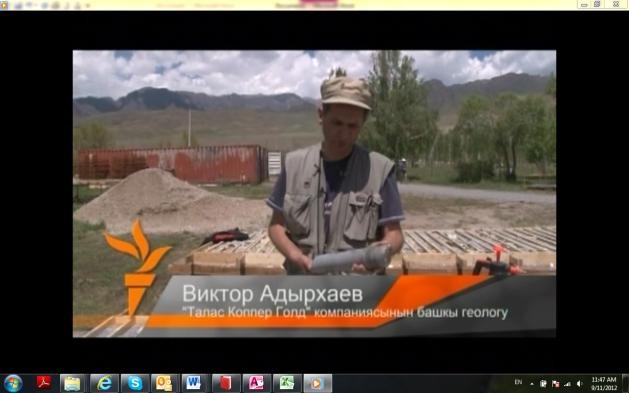
“These [uranium tailing storage facilities] were built incorrectly. They don’t meet standards. Water leaks into our soil. We have been saying this, but inspectors keep repeating that everything is clean,” complained a Chatkal district resident to an Azattyk Television crew. “In reality, the soil is polluted.”
There are numerous coal and gold deposits in the Kyrgyz Republic. Despite the potential to bring socio-economic benefits to the country, issues surrounding extractive industries have prompted protests in Chatkal, Talas and Naryn provinces. In some cases, mining camps have been attacked. Even with the support of government officials, mining companies and local communities struggle to have a constructive dialogue. There is little balanced or investigative reporting covering the many points of view on the controversial mining issue.
Inconvenient Questions, a popular 30-minute weekly Kyrgyz-language TV program on current affairs, is produced by Azattyk Television, a unit within the Kyrgyz Service of Radio Free Europe/Radio Liberty. This year, USAID’s Office of Transition Initiatives (OTI) helped improve the journalism and production skills of the Azattyk Television team. Now, the nine-person crew covers controversial issues such as mining, using an investigative program format that emphasizes on-location reporting. In a three-part series on mining, Inconvenient Questions sent teams to Talas, Naryn and Osh provinces, and gained unprecedented access to mining camps.
“[T]here is a lot of talent and enthusiasm among [the Azattyk] staff. The best way to maximize support … [is to] allow the teams more opportunities to ‘get out,’" said USAID/OTI technical consultant Neil McCafferty, after spending two weeks with the Azattyk team. Telling stories from the point of view of the people directly affected won the trust of both mining companies and local communities. To ensure maximum reach, the three episodes added Russian and English subtitles for rebroadcast on television and dissemination to international donors and mining companies.







Comment
Make a general inquiry or suggest an improvement.